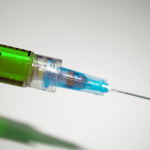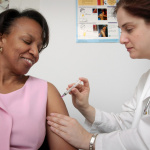As vaccine campaigns are going strong in several countries in Europe and around the world, there is yet one question: which vaccine should you choose to defend your body against Covid-19? So far, in France, the only vaccine issued is provided by Pfizer/BioNTech, but Moderna vaccine is expected to be so “in the coming hours or days”, the new French Agency for the Safety of Health Products director general Christelle Ratignier-Carbonneil said this January 4 on Europe 1. As for the AstraZeneca vaccine, it is already used in the United-Kingdom, in India, in Argentina, and in Mexico.
Even though thousands of people given priority have already been inoculated with the first vaccine dose, the youngest French showing no comorbidities have to wait spring to get vaccinated. It is likely they will be asked to choose the vaccine they want to have injected.
To make the right call for you, you have to know what are the differences between these three vaccines, that are – so far – the more advanced in the world.
The Moderna and Pfizer vaccines are very similar, as they both used the Messenger RNA technology, also used in a softer version in MMR vaccine (vaccine against measles, mumps and rubella). This technology enables to create a large number of doses for a low price, and in a short time.
Moderna and Pfizer both use synthetic RNAm based on SARS-CoV-2 coronavirus S protein. The main different is that the Pfizer formula injects 30µg of RNAm in 0.3ml of saline solution to patients, as Moderna has opted for a more concentrated formula: 100µg in 0.5ml of saline solution.
As for Oxford AstraZeneca vaccine, it is a “viral vector”-based vaccine. This technique enables to use another virus made harmless as a support to inject Sars-Cov-2 genetic material into the cells. You can see it as a Trojan horse that will enter your body to attack it and force it to defend itself – and then create immune reaction.



 Covid vaccine: what is a messenger RNA?
Covid vaccine: what is a messenger RNA?
As Covid vaccine has started to be injected to some people in the world in several countries, many people are wondering what this new technology developed for these products is about, a messenger RNA. Keep reading to find out more! [Read more]
If these vaccines have been approved, issued and injected, it means they proved they were effective. At the end of trials, Moderna is said to be overall 94.1% effective, with results slightly decreasing in people aged 65+ (86.4%). Pfizer is more constant: overall 95% effective, and totaling 94.7% in people aged 65+.
AstraZeneca led two studies. The first one (half a dose, then complete dose one month later), leads to 90% effectiveness. The second study (two complete doses one month apart) is only 62% effective. Naming an average 70% effectiveness, which is completely satisfactory to justify the use of this vaccine.
All these vaccines include adverse effects. Local pain, where the injection has been made, as well as more standard side effects such as fatigue, headaches, muscle pain (myalgia) that generally disappear within two to three days. British authorities yet do not recommend the Pfizer vaccine to people suffering from allergies: it could lead to severe reactions such as anaphylactic shock. AstraZeneca only reports one case of severe adverse effect (in 20,000 people vaccinated): transient paralysis of lower limbs.



 Pfizer-BioNTech vaccine: pregnant women, allergic history… when is it not recommended?
Pfizer-BioNTech vaccine: pregnant women, allergic history… when is it not recommended? Major factor to coordinate mass vaccines: the cost and storage of the vaccines. If AstraZeneca is highly awaited on the European market, it is because it is less expensive and easier to handle than the others. The European Union bought 400 million doses of this vaccine for €2.50 apiece. It can be stored up to six months in an average fridge, between 2°C and 8°C (naming between 35.6°F and 46.4°F). Yet, AstraZeneca is unlikely to be approved before February 2021 in France.
Moderna is the most expensive of the three vaccines, costing €20.90 apiece. Europe will order 160 million doses. It can be stored for six months around -20°C (-4°F) and up to 30 days between 2°C and 8°C.
We already knew it, but the Pfizer vaccine is the most restrictive as it comes to transport and storage. It can only be kept in specially-designed freezers, between -80°C and -70°C (-112°F and -94°F). The European Union yet bought 300 million doses for €16.30 apiece.



 Covid: can you get another vaccine for the 2nd shot?
Covid: can you get another vaccine for the 2nd shot?
Is it possible to get another vaccine for the 2nd shot? Medical interest, governmental authorization, here is more about this "mix and match" option likely to enable us to change vaccine during the process... or not. [Read more]